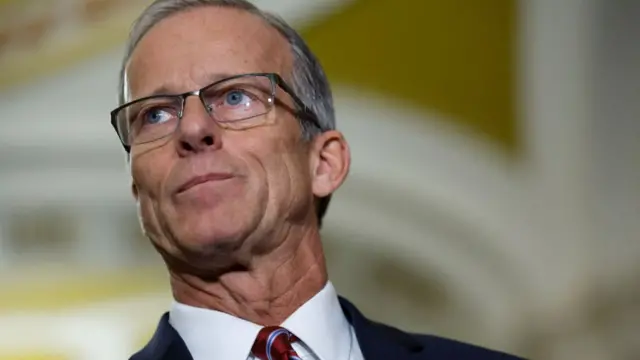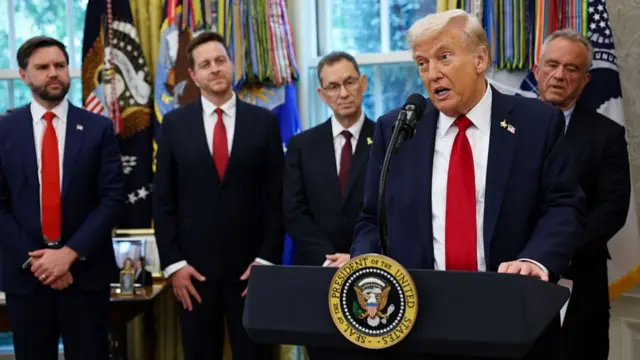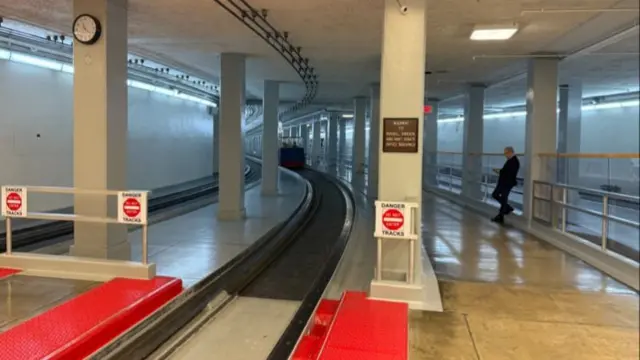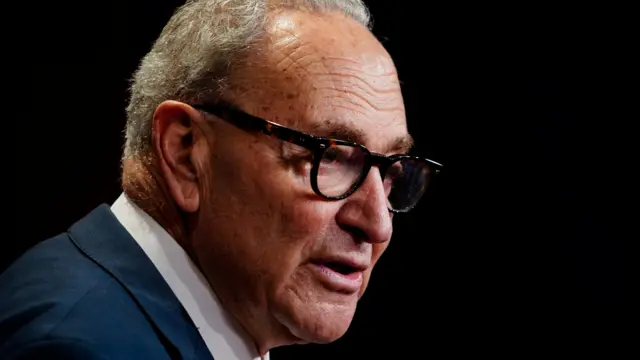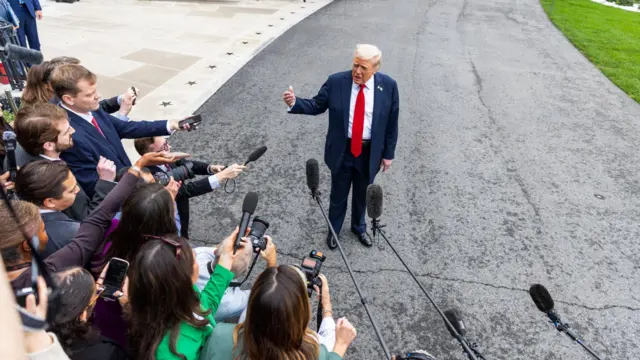Democrats and Republicans are not communicatingpublished at 18:41 BST 30 September
 Ana Faguy
Ana Faguy
Reporting from Capitol Hill
One thing that is clear talking to members of Congress, their staffers and other members of the press is that Democrats and Republicans are not talking to one another - they’re talking at each other.
Hope continues to fade and the rhetoric has largely stayed the same. Both sides blame each other.
We’re waiting to hear from Senators following their lunch, stick with us and we’ll bring you the latest.

